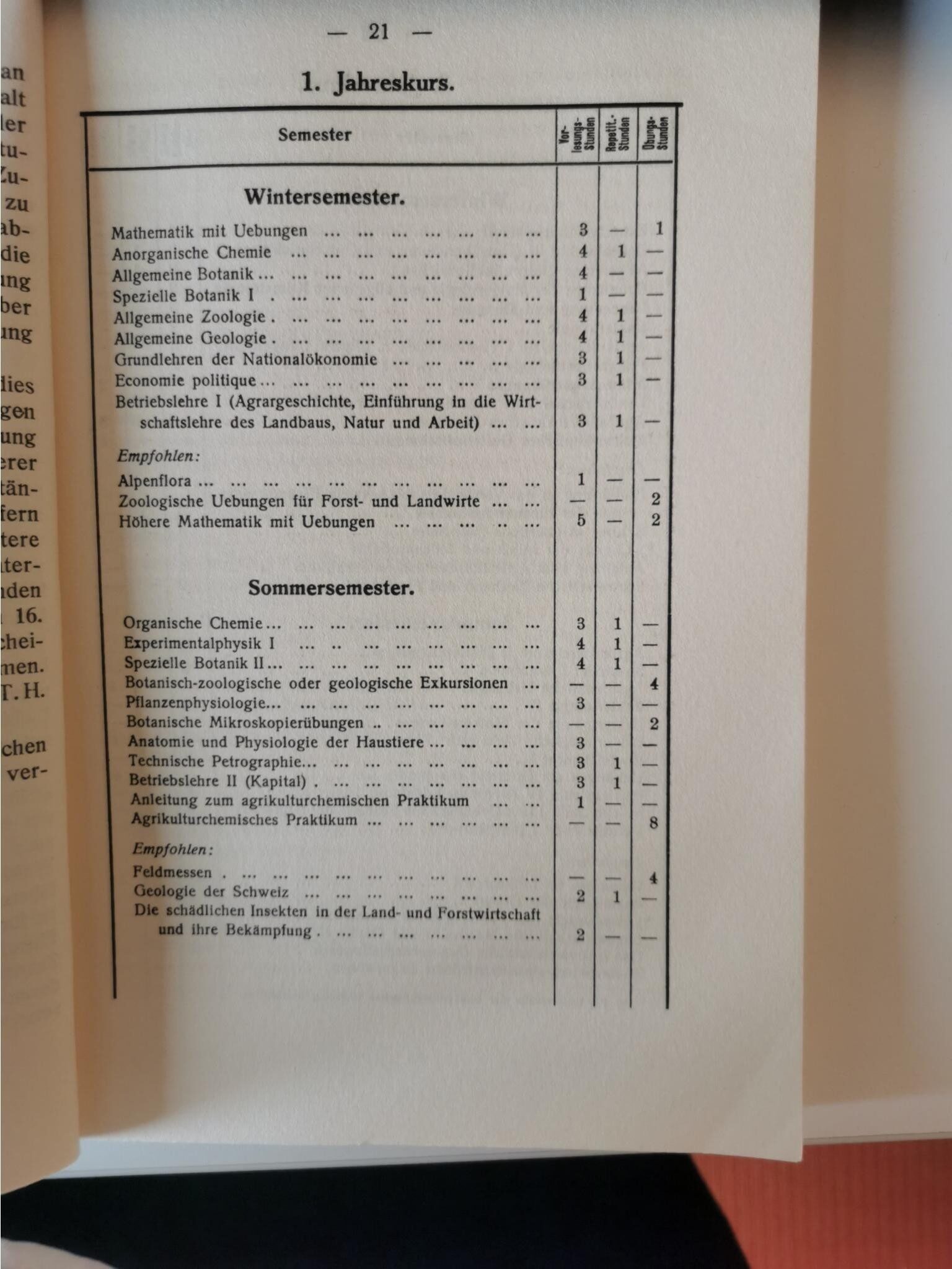Choice of subjects in Agricultural Sciences over time
More subjects, but also more choice
The comparison of timetables from 1939, 1971, 1994 and 2018 shows: the agricultural sciences degree programme is in constant development. While the basic subjects have remained the same over the years, there are more choices today than in the past.
When the agricultural study programme started in 1871, the training lasted just two years. The range of subjects on offer was not at all modest. The first three professorships covered the areas of farm management and animal production, plant production and arable farming, and agricultural chemistry and agricultural technology.
More semesters
As early as 1875, the programme was replaced by a five-semester programme. Over time, the programme was extended by one semester until it finally grew to seven semesters in 1932. At that time, there was only the specialisation of dairy technician in addition to the general study of agriculture. More than a quarter of a century later, in 1958, the number of semesters was increased to eight. In 1971, the length of study was finally increased for the last time to ten semesters.

More subjects, more specialisations
If you look at the 1939 timetable today, the first thing you notice is that there are far fewer subjects. Nevertheless, the lessons covered the most important topics, including basic natural science subjects (mathematics, physics, biology and chemistry), crop protection/ecology, economics and law, agricultural technology and animal production. All these subjects have been retained over the years and are still taught at ETH today, in some cases the names have simply changed.
In 1946, agricultural technology was added as a new subject to the dairy technician study programme. Agricultural biotechnology and agroecology were not introduced as specialisations until 1994.
From 1971 onwards, the basic education was expanded to include several new subjects: Computer Science and Politics, as well as field trips, seminars and lectures on tropics/world. Although the basic studies looked more or less similar to 1939, more electives were added over time. The study programme thus became more flexible and now better adapted to the interests of the individual students.
Broader education
In the twenty-first century, in the course of the Bologna reform process, the study programme was redesigned into a Bachelor’s and Master’s programme. In 2016, the last study reform for the time being, AGROfutur, came into force, in the course of which the study programme was revised once again. At the Bachelor’s level, the goal is the broad acquisition of knowledge in various agricultural science disciplines, as stated in the guide. At the Master's level, in-depth agricultural science expertise is acquired.
The agricultural science study programme is more extensive today than it used to be. Since the demands on agricultural scientists are diverse and constantly changing, there will probably be further study reforms in the future.